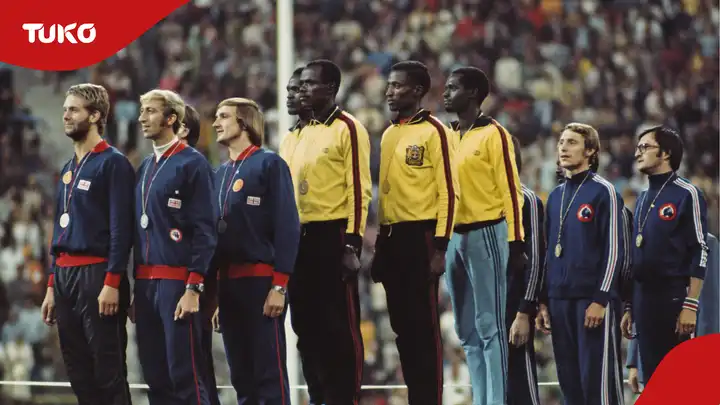Kenya has lost one of its athletics icons. Hezekiah Nyamau, Olympic gold medallist in the 4×400 metre relay at the 1972 Munich Games, has died after a long fight with cancer. He was 88 years old. Kenyans+2Tuko.co.ke – Kenya news.+2
Nyamau passed away on the morning of Tuesday, October 7, 2025 at a hospital in Nakuru County, his granddaughter Felister Nyamau confirmed. Kenyans+1
A Legend’s Long Career
Over the decades, Nyamau carved out a legacy that inspired generations of Kenyan athletes:
-
He was part of Kenya’s 4×400m relay team that won silver at the 1968 Olympics and gold in 1972. Kenyans+2Tuko.co.ke – Kenya news.+2
-
He also won gold in Commonwealth and regional events, and dominated relay competitions in East and Central Africa between the mid-1960s and early 1970s. Kenyans
-
Beyond athletics, he served in the Kenya Defence Forces from 1963 until his retirement in 1997. Kenyans+1
Final Months & Illness
Nyamau was diagnosed with bladder cancer in February 2025. The Online Kenyan+3Taifa Leo+3Kenyans+3
Since the diagnosis, his health steadily worsened. He was hospitalised several times — first in Kisii, then later in Nakuru. His family openly appealed for assistance, both financial and medical, noting that his condition had affected his ability to speak. Kenyans+2Tuko.co.ke – Kenya news.+2
Calls for Support & Legacy
Before his passing, Nyamau had publicly lamented what he saw as inadequate care and recognition for senior athletes in Kenya. He called on the government and relevant institutions to provide support for athletes in their old age — not just celebrate them in their prime, but care for them thereafter. Taifa Leo+1
His death leaves Charles Asati as the last surviving member of the quartet that brought Kenya its 1972 Olympic gold in the 4×400m relay. Kenyans+1
What It Means for Kenya
Nyamau’s story is both one of triumph and of warning:
-
Triumph in that he achieved greatness at a time when resources, infrastructure, and global exposure for Kenyan athletes were far more limited.
-
Warning in that his last years highlighted gaps in support for retired sports heroes: access to medical care, financial stability, and public recognition.
As the country mourns, many are reflecting on how best to honour its sports legends—not just in memorials, but through meaningful systems that ensure dignity in their later years.
Conclusion
Hezekiah Nyamau’s passing marks the end of a remarkable era in Kenyan athletics. He shone on the world stage, bringing honour to his nation through speed, teamwork, and determination. Now, he leaves behind not just memories and medals, but a reminder: heroes deserve our respect every day—not only when they run, but also when they rest.
May his legacy inspire not just athletic excellence, but compassionate care for those who lay the foundations of Kenya’s sporting pride.








